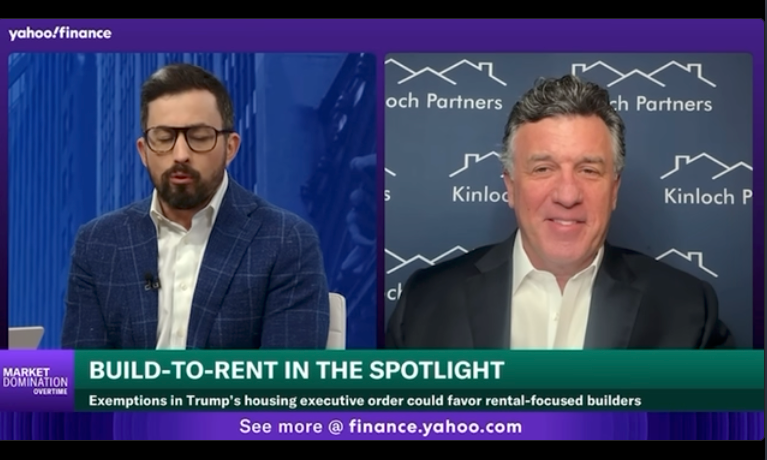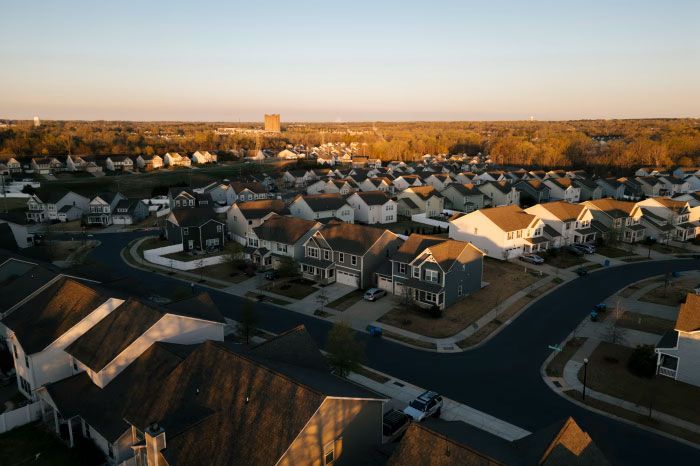The subdivision was once a close-knit community of homeowners who kept an eye on each other’s houses. These days, he said, “if I saw a strange car parked in the neighbor’s driveway … I wouldn’t know if someone’s breaking in or not.”
Walker is seeing more new faces in Sage Creek, and many of them belong to renters. It’s a reality that has him and others worried. Transient neighbors don’t have the same vested interest in the community, he said.
Walker’s concerns are echoed throughout Clayton County, where nearly a third of the single-family homes are occupied by renters. In Clayton and other metro Atlanta counties, the numbers have doubled since 2000. It’s a trend driven, in part, by the influx of rental companies that bought homes on the cheap during the economic downturn and are holding onto them.
Half of Clayton’s single-family rental homes are owned
by such groups. 
“I like living around neighbors I know,” Walker said. “We believe in the concept that it takes a village. Now it’s like the houses are occupied but we’re not serving in the capacity of the village. The connection with neighbors is gone. ”
On average, more than one in five — 22 percent — of metro Atlanta’s single-family homes are rentals. At 31 percent, Clayton has the highest percentage of renters living in single-family homes in the region. That’s more than twice the rate of Cobb County, and close to double the rate of Fulton and Gwinnett. DeKalb County, with 22 percent, also doesn’t come close.
Clayton Commission Chairman Jeff Turner is concerned about the high numbers of rental homes. The county’s community development department is working to attract more middle-class home buyers.
“Of course we want more families to own more homes, but we don’t know everyone’s circumstance,” Turner said. “They might be renting because of a job situation and some (people’s) credit might not allow them to own homes.”
Clayton renters run the gamut: working-class families looking to escape apartment living. Teachers. Single mothers. Flight attendants looking for crash pads near the airport.
The sharp rise in rental houses in Clayton since 2000 has affected everything from the school system to the county’s overall economic health. People are more transient and less willing to invest in the community, experts say. Businesses are less likely to move into communities with lower home ownership rates.
“We’ve become a county for people in transition,” said Ali Dadpay, who heads Clayton State University’s Center for Research and Economic Sustainability and Trends.
In 2008, a confluence of socioeconomic problems hit the county almost simultaneously. The school system was stripped of its accreditation in August of that year. Four months later, Clayton and the rest of the nation were in full-blown economic crisis. Clayton became ground zero for metro Atlanta’s housing collapse.
The value of houses in some neighborhoods plummeted. The purchases by investors helped stabilize prices.
“Clayton has gone through the ringer,” said Mark Vitner, senior economist for Wells Fargo in Charlotte.
Nationally, 39 metropolitan areas have as many — or more — renters in single family homes as metro Atlanta. Only the Cape Coral and Lakeland, Fla., and Augusta areas have a higher rate than Clayton.
Clayton’s high rate of rentals creates a burden on:
- The school system. Clayton Public Schools Superintendent Luvenia Jackson says the increased presence of renters in single-family homes affects everything from testing to student turnover. At 31.5 percent, Clayton has the highest student mobility rate — students coming and going — of any school system in Georgia.
- Social programs. The Neighborhood Stabilization Program has bought, rehabbed and resold more than 200 homes in Clayton to families in the last six years, but deep-pocketed investors have made that mission harder now. “We’ll see vacant homes and try to contact the bank and they don’t even want to talk to us now because they’re packaging up those homes and selling them in bulk,” NSP manager Carol Seaton said.
- Individual homeowners. Community activist Derrick Boazman said the flood of single-family rentals hurts future home ownership in the county. Investors are buying homes “for the sole purpose of extracting money out of the county,” said Boazman, a former Atlanta City Councilman “They could care less about the stability of the county.”
Boazman also noted that the county is predominantly black. It was hurt by a rash of foreclosures in part because of the huge amount of sub-prime loans, a legacy of redlining.
Home ownership is traditionally a way to build wealth. That wealth allows homeowners to borrow against a mortgage to pay for college or start a business.
There’s nothing wrong with having rentals in a community, said John O’Callaghan, president and CEO of the Atlanta Neighborhood Development Partnership. Problems arise when the dynamics of an area change quickly.
“Every neighborhood needs a mix of homeowners and rental,” he said. “I worry in Clayton County that you don’t have the right mix.”
Because there are so many rentals that aren’t for sale, the housing market remains tight, he said. Fewer sales keep property values down.
Patrick Ejike, head of the county community development department, said as Clayton attracts more firms, creates more jobs and paychecks increase that will help to attract more people who’ll be able to buy instead of rent.
Boazman called on county leaders to address the proliferation of rental homes — and soon.
“Clayton won’t be able to sustain itself if it does not take appropriate legislative action to correct this imbalance,” he said. “They’ve got to look legislatively at how do you limit the number of homes that can be owned by corporations? … They’ve got to know who owns Clayton County.”











